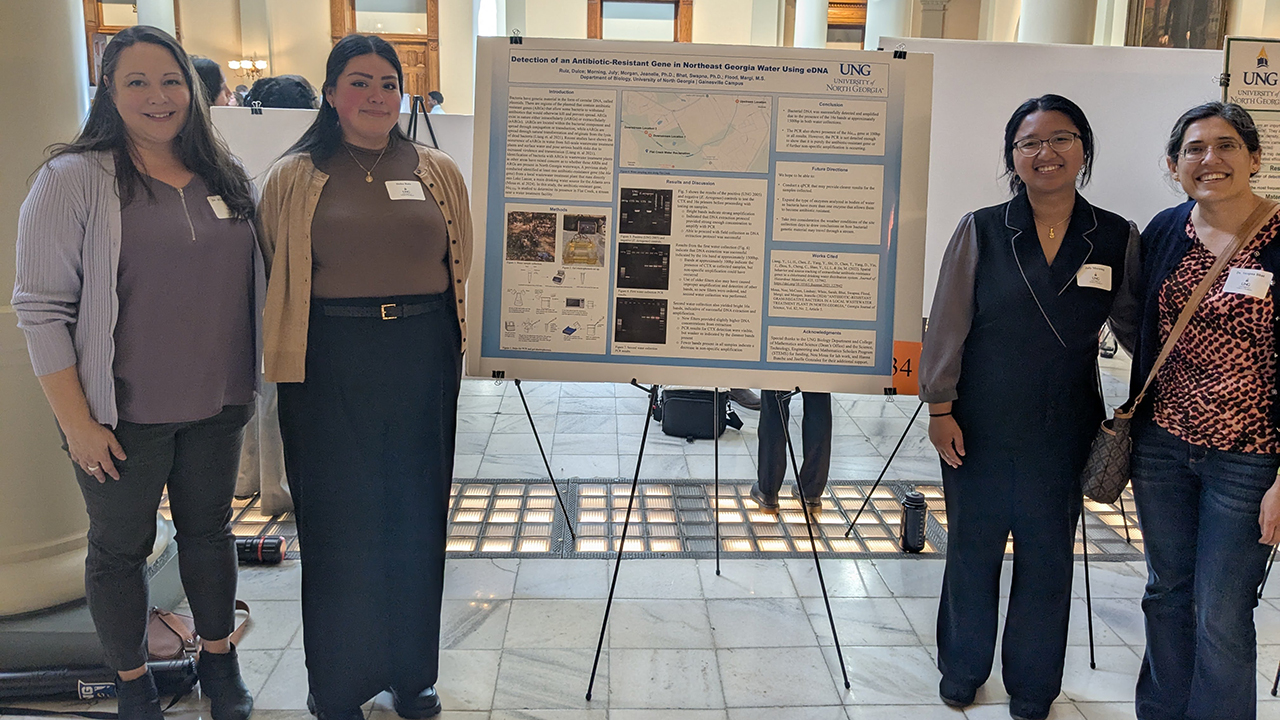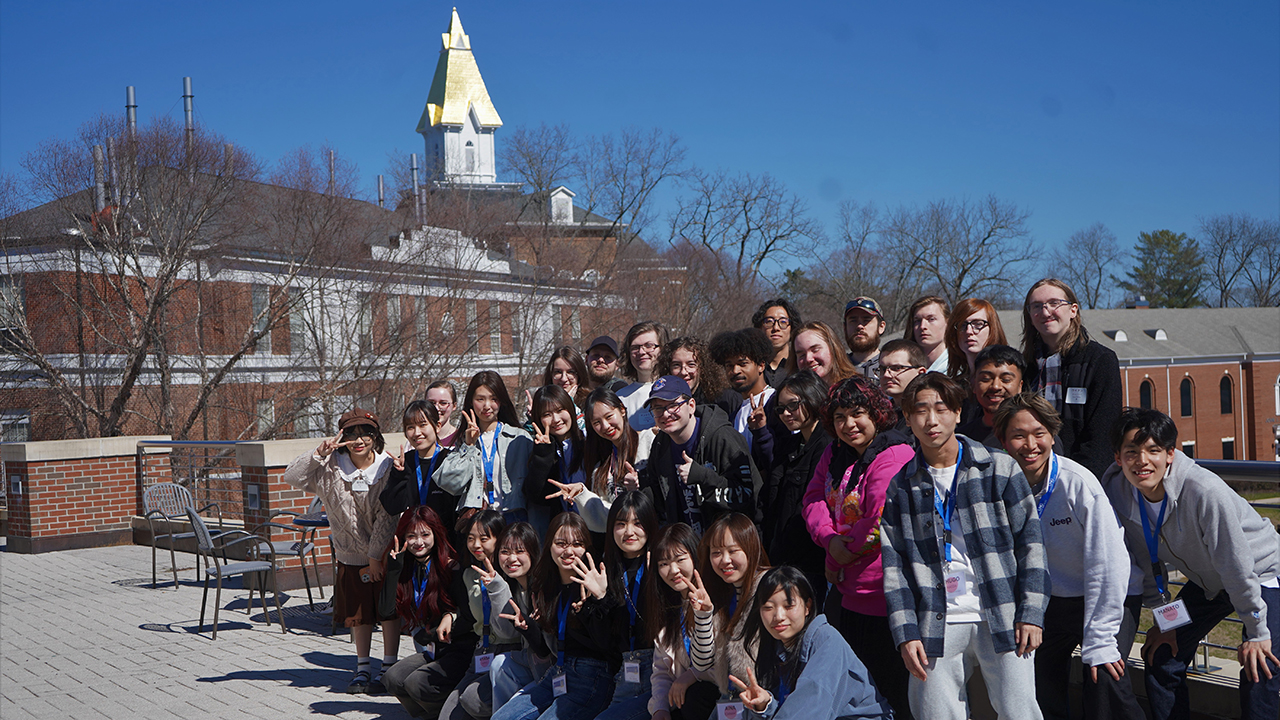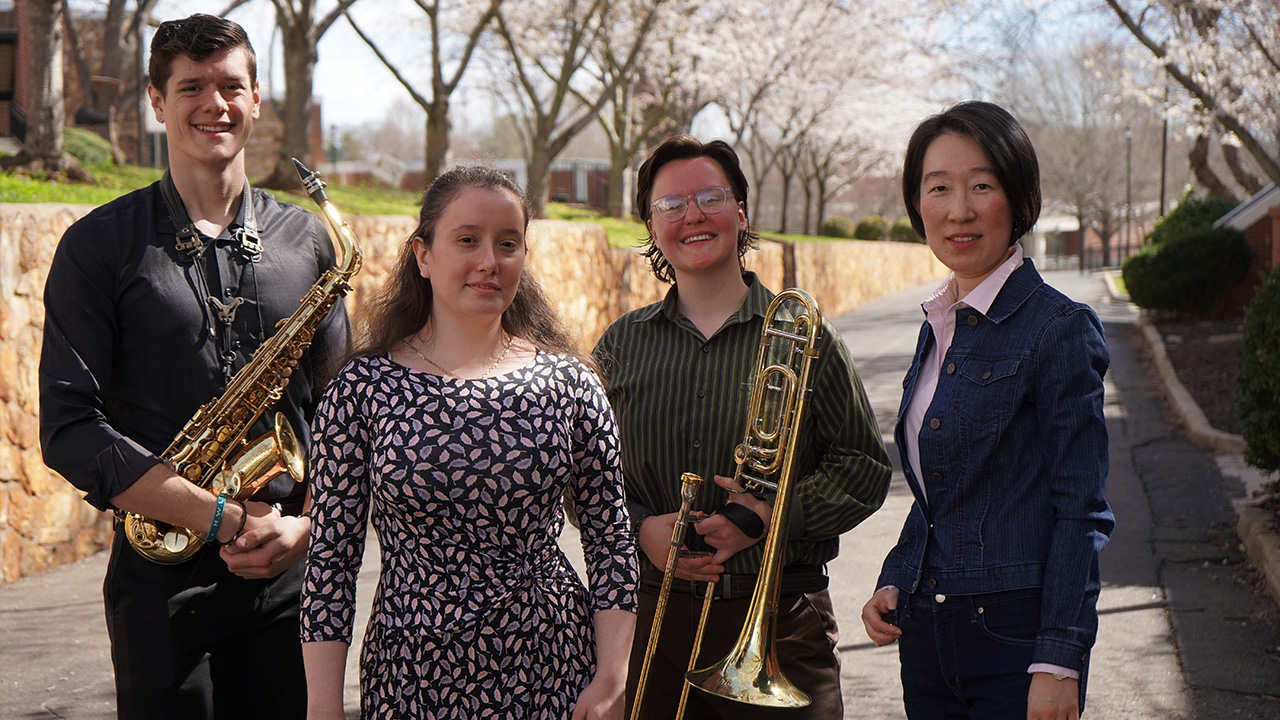Summer Language Institute experiences extend beyond classroom

Article By: Clark Leonard
Students in the University of North Georgia's (UNG) Summer Language Institute (SLI) gained experience far beyond the classroom this summer.
As part of the intensive six-week course from June 15-July 31 that earned them eight credit hours in Arabic, Chinese, Japanese, Korean or Russian, students took field trips to put their language skills into practice.
"The SLI field trips are a chance for greater immersion into the target language in a domestic environment," said Katie Beccue, program coordinator for UNG's Project Global Officer (Project GO) programs, including SLI. "Field trips are timed at a point when students are beginning to comprehend and feel confident speaking the language, providing the opportunity to really apply what they have worked so hard to learn in class."
Project GO is an initiative from the Department of Defense and National Security Education Office, which provides scholarship funds to ROTC cadets who wish to study a critical language during their college career.
Led by UNG lecturer Awad Awad, students in the Arabic SLI participated in two community-based experiential learning excursions in partnership with Alif Institute, Atlanta's Arab-American cultural center. The students visited a Mizrahi synagogue, Arab church, and mosque; the Fox Theatre, Alif Institute, Refuge Coffee, restaurants and markets.
They also assisted Clarkston city workers with their Arabic so the employees can better serve the city's residents. Nearly 32 percent of Clarkston's population is foreign-born with 60 languages spoken in a little more than a square mile, according to the city's website.
"I love that," said Courtney Van Niman, a rising high school senior from Washington, D.C., and SLI participant. "The opportunity to take what you've learned and pass it on to other people is why most of us learn these languages."
Van Niman was one of five high school students in the Arabic SLI class thanks to a grant from Qatar Foundation International (QFI) LLC. She also studied Arabic at a Federal Service Language Academy at UNG in summer 2017. UNG is one of eight institutions to house QFI’s Arabic Summer Study Award program.
Other SLI classes, like the Chinese class, visited markets and bookstores in Atlanta or around the region and tasted food from the cultures they were studying.
For students in the Japanese class, the trip to Atlanta included a visit to the Japan Consul General's residence and a chance to practice vocabulary with native Japanese speakers.
Students from the Korean class visited a Korean monument and attended a Korean singing room to sing songs learned in class.
Students in the Russian class toured a Russian Orthodox church to see the architecture and artwork, and they also practiced vocabulary with World War II veterans and native Russian speakers.
Between the QFI grant and Project GO, most of the SLI students were scholarship winners. Participants included high school students, UNG students, and students from other colleges and universities.
Justin Collado, a sophomore UNG cadet from Augusta, Georgia, pursuing a degree in cybersecurity, appreciated learning Arabic in the context of culture and history to gain a richer understanding.
"It really builds relationships and helps have that good bridge between cultures," said Collado, who attended SLI on a Project GO scholarship.
SLI students lived in UNG residence halls during the program, with a tutor always on hand to help them practice. From 8 a.m. to 8:30 p.m., everything was structured around learning. At the program's end, students were tested on their language skills by the Oral Proficiency Interview — computer (OPIc), an internet-delivered test that provides a reliable gauge of oral proficiency.
Chi-Hsuan Catterson, senior lecturer of Chinese at UNG and academic director of UNG's Chinese Language Flagship, was the founder of the original SLI for Chinese.
"I am very pleased to see SLI serving so many of our students and opening their eyes to the world," Catterson said.



